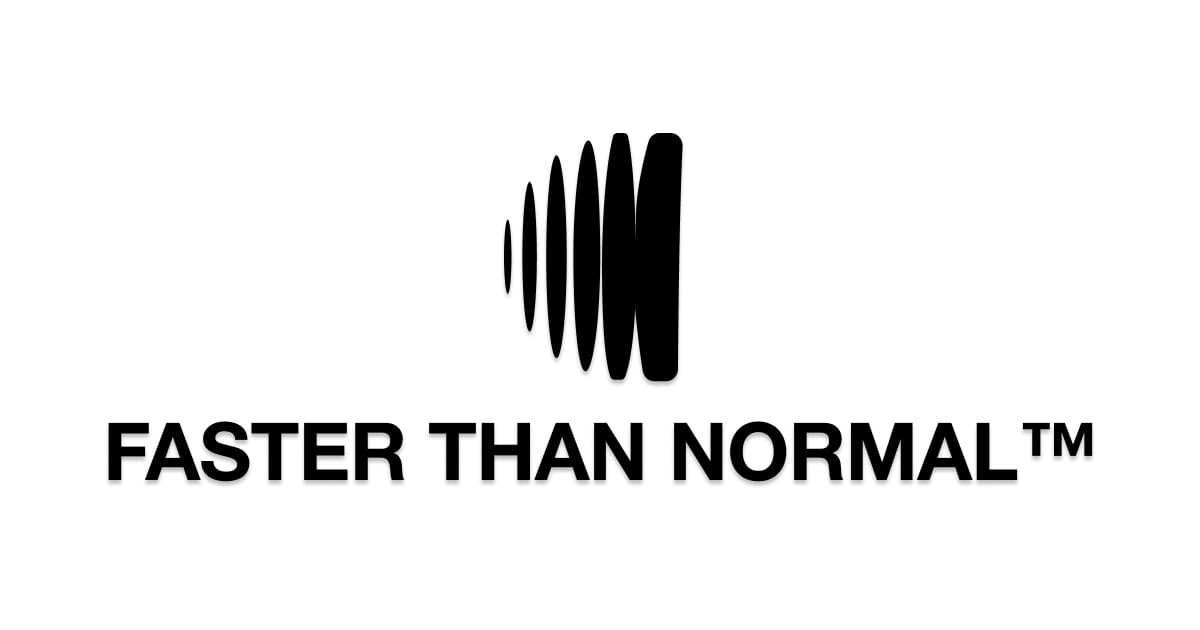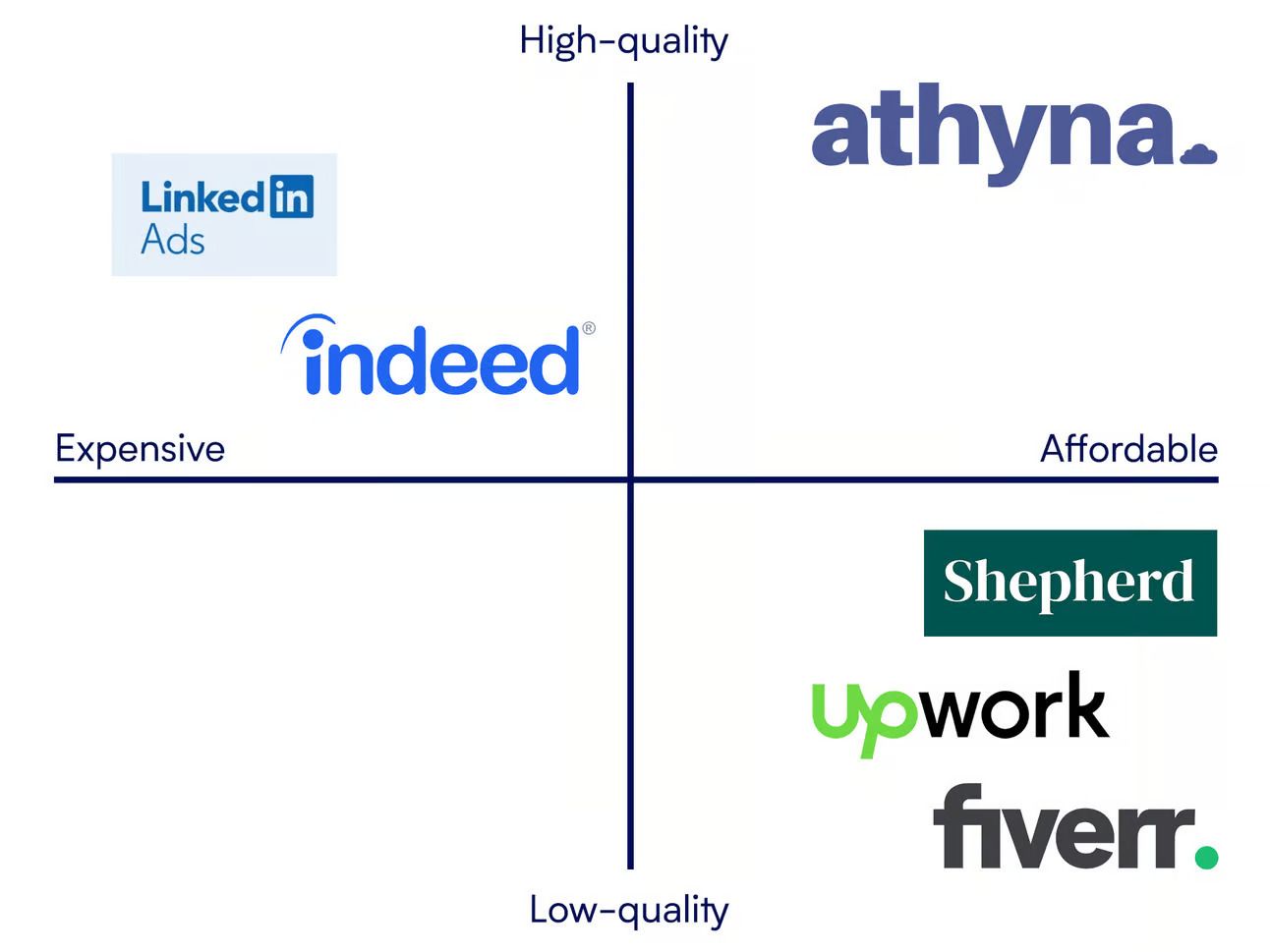
Today’s Fast Summary:
The North Wind and the Sun is another of Aesop’s, the famed Greek storyteller. He used elements of the natural world as metaphors for common phenomena.
Being kind increases serotonin and dopamine levels, boosting the sense of pleasure you feel when you do something good. Show kindness to everyone, not just those who need it.
Kindness isn’t synonymous with ‘nice.’ Depth is the difference. Kindness comes from genuine compassion and a mind towards others.
Hire your next top performer in 5 days or less with Athyna.

Discover a new way of scaling your team. Athyna bridges the gap between extraordinary talent and exciting opportunities, giving your business access to a pool of world-class professionals. Build your dream team with ease, and forget about the hassle and complexities of traditional global hiring.
Athyna handpicks from 70,000+ talents to meet your needs.
Save up to 67% compared to local hiring costs.
No search fees. No activation fees.
Pay nothing until you find the perfect match.
Ready to find your dream team (for way less time and money)?
The Wind and the Sun: Kindness is King
One day, the Wind and the Sun began to quarrel. They argued over which was the stronger force of the two.
Over time, their arguing grew fruitless. Neither could decide which of them was stronger than the other.
While they were arguing, a weary traveler wearing a long coat passed by. The Wind and Sun decided to use him to settle their debate.
“He who is stronger can strip him of his coat,” the Sun said, gesturing at the traveler.
The Wind agreed and sent a formidable gush at the traveler. He continued for a while, but the traveler didn’t remove his coat. Rather, he held it closer to his body, wrapping it around him.
The Wind grew frustrated—his efforts were in vain.
Then, the Sun took its turn. Calmly, it shone its soft rays onto the traveler’s head. The traveler, surprised by the warmth, removed his coat eagerly.
The Wind conceded, and the Sun was deemed the stronger force.
The North Wind and the Sun is another of Aesop’s, the famed Greek storyteller. He often used elements of the natural world as metaphors for common phenomena.
Here are some key takeaways from the Wind and Sun Parable:
1. Kindness Is Key
“It’s harder to be kind than to be clever” - Jeff Bezos
The Wind’s brutal approach was useless, and he failed resultingly. The Sun’s approach was kinder and more gentle, and he was successful.
Show kindness to everyone, not just those who need it.
Studies indicate that kindness increases the sense of connection we feel to others, improves mood, and halts loneliness. Being kind increases serotonin and dopamine levels, boosting the sense of pleasure we feel when we do something good.
The takeaway: A kind approach is an effective one.
2. Persuasion Over Brute Force
“The greatest leader is not necessarily the one who does the greatest things. He is the one that gets the people to do the greatest things.” - Ronald Reagan
The Sun’s persuasive force was more effective than the Wind’s forceful one.
Persuasion is the act of convincing someone to follow you. But, for it to be effective, persuasion must be gentle.
Strong leaders are clever in their persuasion tactics and render force ineffective. To persuade is to transfer emotion: We must make people excited with and for us.
Here are a few general tips to be more persuasive:
Model the behavior you seek in others.
Listen to your audience. Understand them implicitly.
Control your nonverbal communication and body language.
Charismatic people are generally persuasive. Check out this newsletter for more information about charismatic individuals and how you can become one.
The takeaway: The strongest leaders are those who gently persuade their subordinates. Force is ineffective.
3. Simple Plans Are More Effective
The Wind’s method involved great force and effort, but little tactful planning. The Sun’s approach was simpler and gentler, following the line of least resistance.
The Wind engaged in artificial complexity: It believed that the task was more complicated than it truly was.
Decomplication is a powerful tool to accomplish tasks and solve problems. Most problems, when boiled down to their smaller components, are simple.
Strip away the unnecessary information. Ask yourself, “What is truly the problem I’m trying to solve?” Examine the necessary components. Solve the problem.
A simple, thoughtful approach is the one that yields the most impressive results.
The takeaway: Simple is better.
4. Have Confidence in Your Skillset
The Sun understood the gravity of his rays and remained confident in his approach.
Everyone has a unique skill set they can use to solve problems and contribute value. Here are a few tips to find yours:
Ask “What are my greatest strengths?” to those around you. Record their comments.
Challenge yourself with a growth mindset. Engage in new hobbies and interests.
Emulate confident friends or people.
Set SMART goals for yourself, and work toward them.
Conduct a character audit. Identify your key strengths and weaknesses.
Strengthen the skills and knowledge you have, and acknowledge areas of weakness. When crafting an approach, leverage your strengths.
The takeaway: The approach that utilizes your skills is the correct one.
5. The Value of Persistence
“Energy and persistence conquer all things.” - Benjamin Franklin
The Sun’s approach was one of consistency. It bred his success.
Integrity and persistence are the building blocks of success. Consider athletes: For years, they wake at the same time every morning for practice or a workout.
For example, Michael Phelps trained for 6 hours daily and rested his body during his free time. He never quit.
Phelps says this of success and persistence, “If you want to be the best, you have to do things that other people aren't willing to do.”
Consistent results yield greater rewards than last-ditch efforts rooted in luck. Persistent people are more likely to reach their goals.
The takeaway: Persistence is a key component of success.
Some Last Thoughts On Kindness
“Be kind, for everyone you meet is fighting a hard battle.” - Ian MacLaren
You never know what another person is going through. Hence the importance of kindness.
Kindness benefits not only those around you but also increases personal optimism. It helps you maintain a clear perspective.
Kindness isn’t synonymous with ‘nice.’ Depth is the difference. Nice people are polite and out of obligation. Kindness comes from genuine compassion and a mind towards others.

This week, reflect on kindness. What does ‘kind’ mean to you? Use a pen and paper, and record and reflect on your responses.
Define ‘kind.’ Meditate on your answers to the following questions.
a. What is ‘kind?’ How is it different than ‘nice?’
b. Consider someone you feel is kind. List their key qualities and traits.
c. What actions are kind? What do kind people do that separates them from the rest?
d. According to this definition, are you kind?
Reflect on the last time you were kind.
a. Consider the context of the interaction: What happened?
b. What did you do? Discuss your role.
c. Why was it kind?
d. Was it truly kind, or just nice?
e. How did you feel afterward?
Consider kindness in the context of others. Reflect on your personal life or workplace, and scrutinize the behaviours of yourself and those around you.
a. Are the steps you and others take truly kind? How does this group show kindness?
b. Do people in the space work together harmoniously?
c. Do the people involved put each other first?
d. Is kindness present in all interactions? Why or why not?
e. Does the group invoke listening skills? Do they listen when others speak?
Boost your kindness.
a. Based on the tools discussed in this newsletter, how can you be more kind?
b. How can you ensure you’re listening to others and heeding their advice?
c. Do you put other’s needs above your own? Why or why not?
d. When are you unkind? Why?
Kindness is always king.
Conclusion
I’d love to hear from you:
What does kindness mean to you?
How can you show kindness to others?
What would you add about kindness?
Tweet at me (@_alexbrogan) or respond to this email — I’ll try to respond to everyone.
Have a wonderful Saturday, all.
Until next time,
Alex
Whenever you're ready, there are other 4 ways I can help you:
(1) Newsletter Mastery: Learn how to start, scale, and monetise a 5-figure subscriber newsletter (while working full-time). Access everything I've used to grow two Newsletters to 50k+ subscribers in 18 months.
(2) The Sovereign Creator: Learn how to grow a 6-figure audience (without leaving your day job). Access everything I've used to grow from zero to 610k followers in 18 months.
(3) The Master Delegator: Learn how to hire, onboard, and ramp a virtual assistant that will save you 15+ hours per week as a content creator, founder, leader, or investor.
(4) Partner with Faster Than Normal to reach an audience of 65,000 people.


